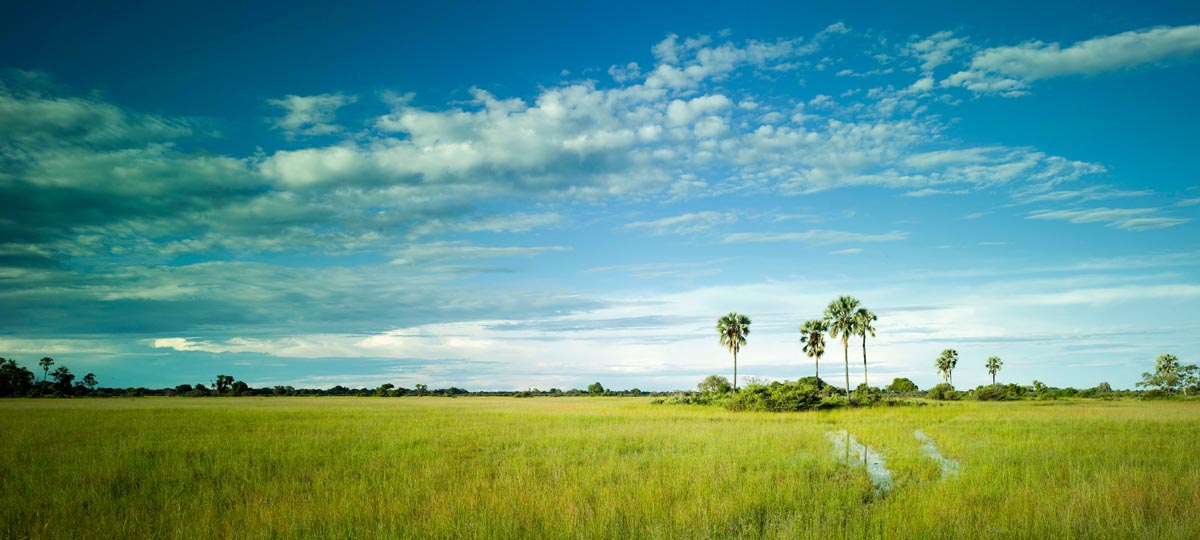Travel Tips - Botswana
Arrival and Departure Formalities
Please check with your nearest Botswana Consulate for up to date information.
All visitors are required to carry a passport that is valid for six months beyond the intended length of stay. Passports should have at least 3 blank pages for entry and departure stamps.
Please contact your local Botswana Embassy to establish whether a visa is required.
Baggage Restrictions at OR Tambo International Airport
Please take note of the below baggage restrictions at OR Tambo International Airport
- Only regular-shaped bags will be allowed to be checked in. This means that the bags must have at least one flat surface to be accepted
- Round or irregular-shaped bags will not be allowed
- Bags with longs straps will not be allowed
Passengers who try to check in bags that don’t conform to these rules will have the option of having their baggage wrapped with one flat side at airport-approved baggage wrapping stations.
Mack Air will accept hard case baggage, however, passengers need to adhere to the below luggage dimensions and weight restrictions:
Dimensions
30cm (11,8 inches) wide
35cm (13,8 inches) high
70cm (27,5 inches) long
Weight
20kgs Including hand luggage
Any travellers expecting to travel with oversized or overweight luggage must inform us well in advance and the appropriate provisions will be made to accommodate any needs.
Time Zone
GMT + Two (2) hours
Currency
The unit of currency is the Pula (P), which is divided into 100 thebe. Notes are in P5, P10, P20, P50 and P100. Coins are in denominations of 1, 5, 10, 25, 50 (thebe) and P1 & P2.
Travelling with children
Regulations aimed at improving the safety of children travelling in and out of Namibia and Botswana have been implemented. All children under the age of 18 will require an unabridged birth certificate together with a valid passport when travelling to or from any of the above-mentioned countries, as well as travellers in transit with a transit visa. The following documents will be required when travelling:
Child and both parents
• An unabridged birth certificate (UBC)
• A valid passport for the child
Child and one parent
Parent must produce
• An unabridged birth certificate (UBC)
• A valid passport for the child
• A court order (where applicable) / death certificate (of any deceased parent reflected on the UBC) / affidavit confirming the absent parent has given permission for the child to travel.
• Certified copies of both parents’ ID / passport.
Child and guardian
Guardian must produce
• An unabridged birth certificate (UBC)
• A valid passport for the child
• A court order (where applicable) / death certificate (of deceased parent/s reflected on the UBC) / affidavit confirming the parents have given permission for the child to travel.
• Copies of parents / guardian ID / passport.
• Contact details of parents / guardian
Child unaccompanied
• An unabridged birth certificate
• A valid passport
• A court order (where applicable) / death certificate (of deceased parent/s reflected on the UBC) / affidavit from both parents or legal guardian confirming permission to travel.
• A letter from the person who will receive the child including their full contact details and residential address and a certified copy of their ID / passport.
• Contact details of parents / guardian.
Money Matters
Currency:
The unit of currency is the Pula (P), which is divided into 100 thebe. Notes are in P5, P10, P20, P50 and P100. Coins are in denominations of 1, 5, 10, 25, 50 (thebe) and P1 & P2.
However, US Dollars are accepted throughout Botswana at all lodges.
Banking hours:
Monday to Friday 09:00 - 15:30
Saturday 08:15 - 11:00
Credit cards
All major credit cards are accepted at hotels, lodges, shops and restaurants. However, some establishments do not accept payment by Diners or American Express.
Weather
Best time to go to Botswana
The high season is from July to October. The shoulder season from May to June is dry with very cold mornings and evenings. November to April is a less popular time to visit due to the rains that cause animals to disperse over wider areas and many roads become inaccessible due to the mud. Photography is excellent year-round, scenery is most spectacular from September to February during the first rains. For wildlife the winter months from May to September are best as the vegetation is less dense and game viewing is generally more prolific. Birding season is from October to March. Flood season starts in April.
SUMMER:
November - April, days are hot and generally sunny in the morning with possible afternoon thunderstorms. Daytime temperatures can rise to 38ºC (100.4 Fahrenheit) and night temperatures drop to around 20ºC (68 Fahrenheit) - 25ºC (77 Fahrenheit). The afternoons can be very humid. The rainy season begins late in October/November and ends in March. The northern areas receive up to 700mm while the Kalahari Desert area averages as low as 225mm.
WINTER:
May - October, days are dry, sunny and cool to warm while evening temperatures drop sharply. Daytime temperatures generally reach 20ºC (68 Fahrenheit) and can drop to as low as 5ºC (41 Fahrenheit) at night. Please note that exceptionally cold spells can occur (although this is the exception rather than the rule) so it is recommended to bring appropriate clothing, just in case!
In summer, during the morning, humidity ranges from 60 to 80% and drops to between 30 and 40% in the afternoon. In winter humidity is considerably less and can vary between 40 and 70% during the morning and fall to between 20 and 30% in the afternoon.
Best birding months are Nov - March when the Delta is brimming with migratory birds. Best botanical months are December - May when the vegetation is lush and green, and also when most plants are in flower.
Clothing
Comfortable clothing is suitable throughout the year. It is certainly not necessary to bring a separate change of clothing for day and evening, and it is recommended that you keep luggage to a minimum for your own comfort and ease of transport, especially if you are using light aircraft transfers. The most practical items to pack for safari are:
• Blouses with long sleeves (even in summer, they will protect you from the sun and the mosquitos)
• Cotton t-shirts and tops
• Shorts for the day. Jeans or chinos for evenings and cooler days
• Fleece, sweater or warm jacket for game drives
• Comfortable walking shoes (hiking boots are not necessary)
• Sun block, sunglasses and hat
• Camera
• Swimwear, as most hotels/lodges have swimming pools
• A small alarm clock
Layers are most practical for the fluctuating day/night temperatures of Botswana. It is advisable that your clothing be as neutral as possible in the bush (beige and khaki is ideal). If you wear prescription glasses or contact lenses, we recommend that you bring an extra pair of glasses or a copy of the prescription. Please note that all luxury hotels and most game lodges offer a same-day laundry service (some at additional charges). This is a good reason not to pack too many clothes!
Health
It is important that you check with a qualified health professional for the most current information concerning your travel itinerary and personal health history.
Anti-Malarial precautions are an absolute necessity when visiting the game parks in the region. It is important that you check with a qualified health professional for the most current information concerning your travel itinerary and personal health history.
The sun in the southern hemisphere is extremely strong – make sure you wear an effective sunscreen and hat. It is advisable to avoid the midday sun. Recommended SPF is 30.
Throughout Southern Africa it is safe to eat all foods and drink tap water in cities and towns. Purified water in flasks or bottled water is provided at game lodges throughout the region. It is also suggested that you bring a smaller traveller’s kit with remedies for minor stomach ailments or motion sickness. You should include an adequate supply (in your hand luggage) of any prescribed medication you may require while traveling.
Travellers with physical disabilities and those who require frequent or on-going medical attention should advise us of their health situation at the time of booking (or at the time such a situation occurs should this be after the reservation is made).
We do recommend that you take out comprehensive travel insurance to cover you in the event of a medical emergency.
Electricity
Botswana’s electrical system is 220/230 volts A/C 50 cycles. Most hotels and lodges and camps have hair dryers and plug adaptors in the bedrooms.
If you bring electric appliances, take along an international converter kit complete with a set of adapter plugs.
Outlets in Botswana require a three-pronged adapter plug with 3 round prongs
Tipping
Tipping is not compulsory. You are travelling on an independent itinerary and the cost of your program does not include gratuities. Tipping is a very personal matter and should only be considered when the staff have gone above and beyond for you. Should you feel you would like to acknowledge their service, please consider the following as a rough guide, per day.
Tour Director - 15
Driver / Guide (Half day) - 8
Driver / Guide (Full day) - 12
Hotel Porters - 5
Professional Guide - 15
Ranger - 15
Tracker - 8
Lodge staff - 12
Please note: Currency is in USD
The above tipping guidelines are recommendations only and are not compulsory. Please use your own discretion in tipping, based on quality of service.
Restaurants
It is customary to add 10% to the bill in restaurants, if the service has been satisfactory.
Taxis
Taxi drivers do not expect to be tipped but they appreciate the fare being rounded up.
Porterage
If you are being transferred by an our representative from the airport to a hotel, then porterage and tipping of porters is already included. You are not expected to tip our representative. Porterage and tipping of porters for transfers from one hotel to another is as above.
Language
English is the official language of government and business in Botswana. Setswana is the predominant indigenous language and the first language of most of Botswana.




